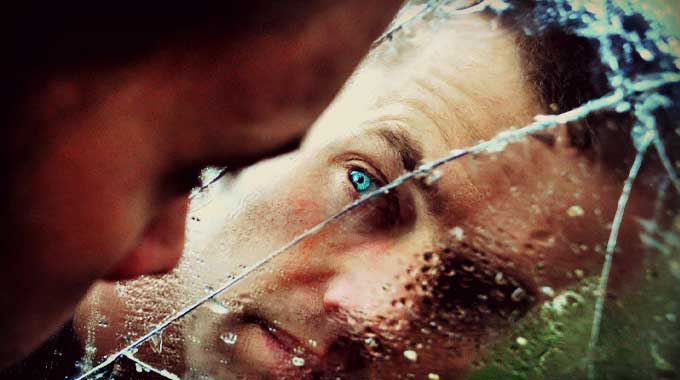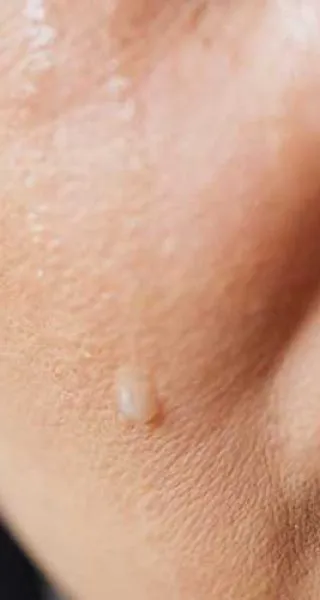Feeling sad is part of being human. We all experience times of sadness or distress in our lives. Sometimes this can be due to a specific event such as grief, disappointment, or fear, and sometimes it’s just a phase of life. Understanding whether our sadness is a temporary phase, or something more permanent, can be difficult.
- Whats The Difference Between Sadness And Depression
- What Is Depression Major Depressive Disorder
- Am I Sad Or Depressed
- Common Symptoms Of Major Depressive Disorder
- Psychological Signs Of Depression
- Physical Signs Of Depression
- Depression Diagnosis
- Causes Of Depression
- Specific Triggers
- Difficult Childhood Experiences
- Co Existing Mental Illness
- Improving Mental Wellbeing
- Getting Help For Clinical Depression
- GIA Chicago
Below we look at the difference between depression and sadness, how to identify what you are experiencing, and how to get help.

What’s the Difference Between Sadness and Depression?
We all have the ability to feel sad, even people who have seemingly great and happy lives will feel down at times. Sometimes, these phases will be a natural reaction to a life event such as grief, a disappointing experience, or a worrying global event. At other times, sad feelings will arise due to no clear or identifiable cause.
These feelings of sadness dissipate with time and they do not permeate through our entire existence. This form of sadness usually eases when we discuss our feelings with someone else or as the experience passes.
If these feelings of extreme sadness do not ease, and they begin significantly impacting your daily life it could indicate you are experiencing symptoms of depression.
What Is Depression (Major Depressive Disorder)?
Clinical depression (major depressive disorder or MDD) is a mental health condition that manifests in persistent feelings of sadness or emptiness. These feelings are likely to disrupt everyday life and can last for months or years if not treated. Depression can also be a symptom of other physical or mental health conditions, such as covid, cancer, or bipolar disorder.
If you recognize any of these symptoms in yourself or someone you love, seek help as soon as you can. The earlier treatment is sought, the more successful the outcomes will be.
If you think that you or someone you know is at risk of suicide you can call 988 Suicide & Crisis Lifeline. This is a free, confidential national helpline.

Am I Sad or Depressed?
Depression is a common mental illness in the United States. Research by the National Institute of Mental Health found that every year MDD affects approximately 17.3 million adults, around 7.1% of the U.S. population age 18 and older.
If you are unsure whether you are feeling depressed or if it is just sadness, get in touch with a healthcare professional such as a doctor. Sometimes talking these things through can help you to understand what you are feeling.
Depression usually brings other symptoms as well as sadness, people with this mental health condition may feel hopeless and worthless. They may feel as though their life is not worth living anymore.
Depression differs from sadness in the following ways:
- It usually leaves people unable to enjoy things they previously enjoyed
- It can result in physical symptoms such as pain and nausea
- It may impact sleep quality
- It can lead to other mental health issues or substance misuse
- It can lead to self-harm
- It can lead to suicidal thoughts or actions
If left untreated, depression symptoms can lead to serious risks. Unlike sadness, it can not be improved by a chat with a friend or by going for a walk in nature. Although these things are likely to improve your mental well-being. Depression is a complex condition and the help of specialist mental health practitioners is usually necessary.
Common Symptoms of Major Depressive Disorder
The symptoms of depression vary between people. Some people may experience episodes of depression, and at other times feel relatively okay, while other people will experience constant depressive symptoms.
Depression is the umbrella term for a number of conditions that share similar symptoms but vary in intensity and duration. Major depressive disorder is one condition within this group, and symptoms can be both physical and psychological.
Psychological Signs of DEPRESSION
Although the psychological symptoms vary considerably, they are likely to include; a very low mood that doesn’t subside; feelings of anger or frustration; intense shame and guilt, and very low self-esteem. People with depression may find decision-making difficult, even about seemingly simple things, and they may struggle with concentrating for any period of time.
Depression is likely to make it difficult to find pleasure in things once enjoyed. Some people may experience rumination, which is where they go over things in their heads repeatedly. Severe cases of depression can lead to suicidal thoughts.
Physical signs of depression
Physical symptoms can include; loss of appetite or overeating which may lead to physical changes and digestive issues; trouble sleeping such as early morning awakening, difficulty staying asleep, and oversleeping. People with depression may experience lowered sexual function as a result of their condition. Symptoms that are also common in anxiety such as a tightness in the chest and heart palpitations are linked to depression.
Some of these symptoms, such as loss of appetite or sleep issues, may be felt by someone who is feeling sad. However, they are not likely to persist.
If you are experiencing several of these symptoms for a period of time, it could indicate you are living with major depression. Get in touch with a healthcare professional to discuss your experiences.

Depression Diagnosis
Major depression is a complicated disorder that requires professional medical support. There are agreed criteria formulated by the Diagnostic and Statistical Manual of Mental Disorders (DSM-5) to help medical professionals diagnose more accurately.
For someone to receive a diagnosis of depression, they must experience five of the following symptoms within a two-week period. Additionally, at least one symptom should be one of the first two in the list below.
- A very low mood for most of the day, nearly every day.
- Loss of pleasure in, most or all daily activities for most of the day, nearly every day.
- Severe weight or appetite change which could include; weight loss or weight gain, decrease or increased appetite.
- ‘Foggy brain’
- Physical lethargy/fatigue most days.
- Significant feelings of guilt, shame, and worthlessness, most days.
- Trouble concentrating and decision-making, most days
- Intrusive thoughts of death, suicide, suicidal ideation, or attempts.
These symptoms may alternate, but their presence is likely to cause severe distress for people who experience them, impacting their social life, work, and daily life.
It’s important to have a full physical and psychological health check before a diagnosis of depression is made. There are some other physical disorders that can lead to similar symptoms, and ruling them out will help with the treatment process.
Sometimes we use the term ‘severe depression’ in the diagnosis process. This is referring to a phase of major depressive disorder when the person is going through a more severe period of depression.
Causes of Depression
Depression can happen to anyone, at any stage of life. It’s common to question how it started or where it came from, but this unfortunately won’t necessarily help you on your road to recovery.
Focussing on the here and now, instead of getting caught up in the past or future, can significantly improve your outlook and benefit your recovery.
Sometimes it can be helpful to acknowledge the experiences which may have contributed to your experiencing depression. Below we look at some factors which are linked to depression.
Specific Triggers
Sometimes depression is triggered by a difficult or traumatic event, especially if you haven’t received support following the trauma.
Examples include:
- The death of a loved one
- Loss of employment
- Physical illness
- Domestic violence
- Physical, sexual, or emotional abuse
- Experiencing war or violence
Difficult Childhood Experiences
Events in our childhood can go on to impact our mental well-being as teenagers and adults. Experiences such as the following could increase your chances of a depression diagnosis as an adult:
- Childhood neglect
- Abuse
- The loss of a close family member
- Family members experiencing physical or mental illness
Co-Existing Mental Illness
Other mental health conditions can contribute to the development of depression, especially if they go untreated for a prolonged period of time. For example, trying to manage symptoms of PTSD or an eating disorder without support can lead to a depressive disorder. Accessing a professional mental health diagnosis can sometimes lead to the discovery of co-existing mental health issues, including substance use disorders and addiction.
Misusing alcohol or drugs can contribute to depression. Substances can alter the brain’s structure and function, which can lead to increased symptoms of depression. It’s common for people with mental health disorders to use substances in an attempt to self-medicate. Unfortunately, after the effects have worn off this is likely to worsen their symptoms.
Improving Mental Wellbeing
Major depression is a severe mental health condition and it’s crucial that you seek professional help. However, there are also things you can do yourself to improve your mental well-being.
- Improve sleep quality
- Sticking to a sleep schedule can significantly improve your mental health. Make sure you are getting an adequate number of hours of sleep per night. If sleep is a problem for you, speak with your mental health professional about how to improve it.
- Reduce screen time
- Limiting time spent on screens, be that phones, computers, or tablets, can improve your mental health. Research shows that excessive screen time could have detrimental psychological effects, especially for young people.
- Nutrition
- Eating regular meals is important for overall health. Try to incorporate a variety of fruit, vegetables, protein, and healthy fats every day.
- Exercise and fresh air
- Getting outside to do some physical exercise may feel like the last thing you want to do when your symptoms are difficult, but it’s actually one of the best things for your physical and emotional health. Try spending time in nature, swimming, and yoga for mindful activities.
Getting Help for Clinical Depression
Our Chicago treatment clinic offers evidence-based treatment for a range of mental health conditions. Our specialists are continuously updating their training, ensuring we remain at the cutting edge of medical science.
We specialize in TMS therapy, a non-invasive treatment for persistent depressive disorder. TMS is especially helpful for people who have not responded to other forms of depression treatment. TMS therapy has also been shown to be effective in treating substance abuse issues and anxiety.
We believe in treating depression holistically, so we use a combination of therapies with all of our clients.
At GIA Chicago you can expect the following treatment options:
- Cognitive-behavioral therapy
- Dialectical-behavioral therapy
- TMS therapy
- Talk therapy, including individual and group
- Family or couples therapy
- Support groups
We understand how depression can take over your life. We offer the most advanced and up-to-date approaches to treatment, tailored to your specific recovery goals. Our treatment facilities can offer you a safe, secure environment to fully recover.
GIA Chicago
At GIA Chicago, we specialize in non-invasive brain stimulation therapy and complementary treatments to support your mental health recovery.
Our diverse team of specialists brings a wealth of experience to our clinic, enabling us to give you the top-quality care you deserve.
If you are ready to seek support, we are here to answer your call. Our phone lines are always open at (312) 847-1233 or you can contact GIA Chicago online. Your healthier future can start today.





